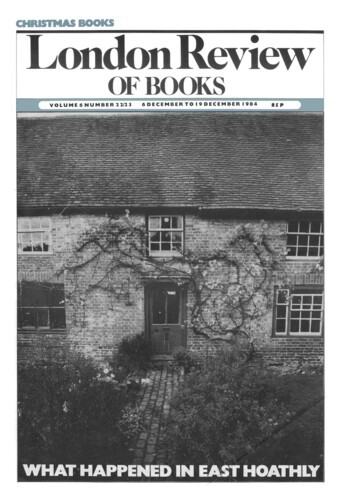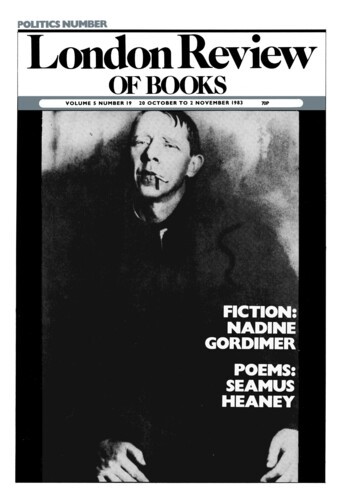Sisterhoods
Brian Harrison, 6 December 1984
It is already beginning to look as though 1979 marked a political and intellectual shift in Britain comparable with 1886, 1906, 1922, 1945 and 1964. For Mrs Thatcher’s electoral victory consolidated an intellectual shift towards conservatism that has penetrated into almost every corner of British society since the mid-1970s. Feminism, always linked to the fortunes of the Left and always vulnerable in the face of unemployment, has not been exempt, and we now seem to be living through one of the movement’s periodic pauses for breath during its long history. Historians and their publishers are sensitive to fashions of this type, and if fashion and ‘relevance’ alone had produced the boom in women’s history since the 1960s, these four books might well have lacked a publisher in 1984.


